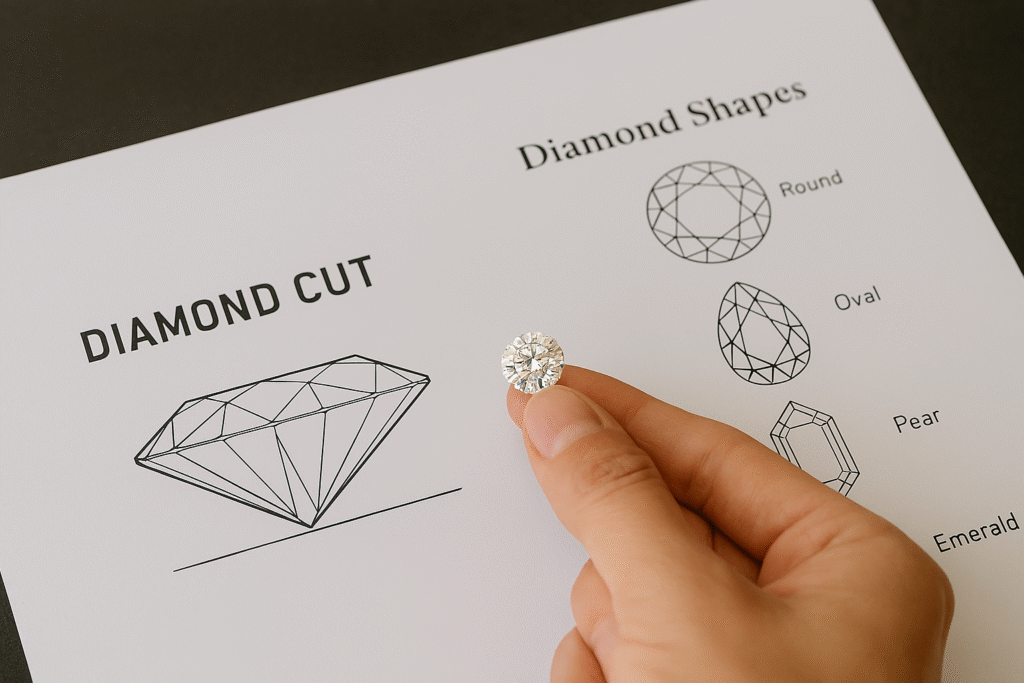Indian Natural Diamond Retailers Alliance and De Beers Partnership
The Indian Natural Diamond Retailers Alliance (INDRA) is helping jewelers across India grow, build trust, and educate consumers about natural diamonds. Partnering with De Beers and supported by the Gem & Jewellery Export Promotion Council (GJEPC), the alliance provides training, marketing support, and certification services to small and independent retailers. With India’s diamond market valued at $10 billion, this collaboration ensures that members of the Indian Natural Diamond Retailers Alliance remain competitive and credible in the growing diamond sector.
Why the Indian Natural Diamond Retailers Alliance Matters
India has long been a hub for diamond cutting and trading, but retail has often been fragmented. The Indian Natural Diamond Retailers Alliance provides:
- Training through the De Beers Institute of Diamonds
- Certification and grading services for natural diamonds
- Marketing campaigns like Forevermark
- Consumer awareness programs highlighting diamond quality and ethical sourcing
This initiative helps independent jewelers compete with large chains like Tanishq while increasing buyer confidence. Research shows over 70% of India’s diamond sales still come from small retailers.
See also: Understanding BIS Hallmark
Benefits for Retailers and Buyers
The Indian Natural Diamond Retailers Alliance ensures collective branding, knowledge sharing, and uniform quality standards. Members gain credibility, while buyers benefit from transparency, verified authenticity, and assurance of ethical sourcing. Awareness campaigns also highlight new diamond-buying occasions, including anniversaries, promotions, and self-purchases.
Read more at:
- De Beers Group
- Gem & Jewellery Export Promotion Council (GJEPC)
- Indian Natural Diamond Retailers Alliance
FAQ For the Indian Natural Diamond Retailers Alliance
Q: What is the Indian Natural Diamond Retailers Alliance?
A: A collaboration between De Beers, GJEPC, and small jewelers to promote natural diamonds and support retailers.
Q: How does it help smaller retailers?
A: By offering training, certification, marketing resources, and consumer awareness campaigns.
Q: Why is trust important in diamond buying?
A: Certified diamonds and informed buyers increase sales and confidence.
Q: Where can I learn more about diamond quality standards?
A: See Mistakes in Gemology for detailed guidance.
Small Luxury Hotels FAQ
Introduction
This small luxury hotels FAQ answers common questions about boutique stays. It explains definitions, differences with large chains, and which services to expect. In addition, it covers family options, sustainability, and tips on finding the right property.
What defines a small luxury hotel?
- Fewer than 100 rooms.
- Personalized attention and privacy.
- Strong links to local design.
- Locations in unique urban or rural areas.
As a result, travelers often choose them for a more intimate experience. Moreover, their distinctive style sets them apart from standardized hotels.
Why choose a small luxury hotel?
Personal service
Staff remember guest details, therefore creating a sense of familiarity.
Calm spaces
Unlike large hotels, these properties feel quieter, so you can relax more easily.
Local culture
For example, menus highlight regional produce, and interiors reflect local crafts.
In addition, many guests return because the experience feels authentic.
How do small luxury hotels differ from large chains?
Guest experience
Small hotels provide tailored attention, while chains rely on uniform systems.
Property identity
Each boutique hotel has its own theme. On the other hand, large chains repeat formats worldwide.
Dining approach
Menus change seasonally and locally. Therefore, guests enjoy fresh variety instead of standard global menus.
Are small luxury hotels only for leisure stays?
Business features
- Lounges double as meeting rooms.
- Private dining options support work dinners.
Digital needs
- Fast Wi-Fi supports remote work.
- Quiet spaces help concentration.
Because of these advantages, small luxury hotels appeal to both business and leisure travelers.
What services can you expect?
- Concierge services for tours and dining.
- Fine dining menus with seasonal ingredients.
- Spa and wellness treatments.
- Added extras like minibars and welcome gifts.
Moreover, services shift depending on location. For example, a city hotel might offer cultural tours, while a rural retreat offers farm experiences.
Are small luxury hotels family-friendly?
Options for families
- Connecting rooms for parents and children.
- Child-friendly amenities such as menus or games.
Adults-only stays
- Some properties focus on privacy.
- Guests find peaceful, child-free environments.
Therefore, always check booking policies, because each hotel sets its own approach.
Do these hotels support sustainability?
Sourcing and dining
Farm-to-table meals reduce transport impact. In addition, guests enjoy fresher produce.
Environmental focus
Plastic use is restricted, while refillable bottles are encouraged. Smart energy systems reduce wastage.
Local involvement
Hotels support the community by hiring regionally. As a result, growth extends beyond the property.
How do you find the right small luxury hotel?
Define needs
Decide if food, spa, culture, or privacy is your top priority.
Check guest feedback
For example, repeat reviews about service often signal consistency.
Compare value
Packages may include meals, transfers, or early check-in. Therefore, higher prices can still deliver stronger value.
Are small luxury hotels worth the price?
Value of service
Guests pay for attention, comfort, and privacy. Moreover, experiences feel tailored and unique.
Extras add value
Some hotels include exclusive experiences or benefits. Finally, weigh these extras against nightly rates.
As a result, many travelers feel these hotels justify their price when quality matters most.



